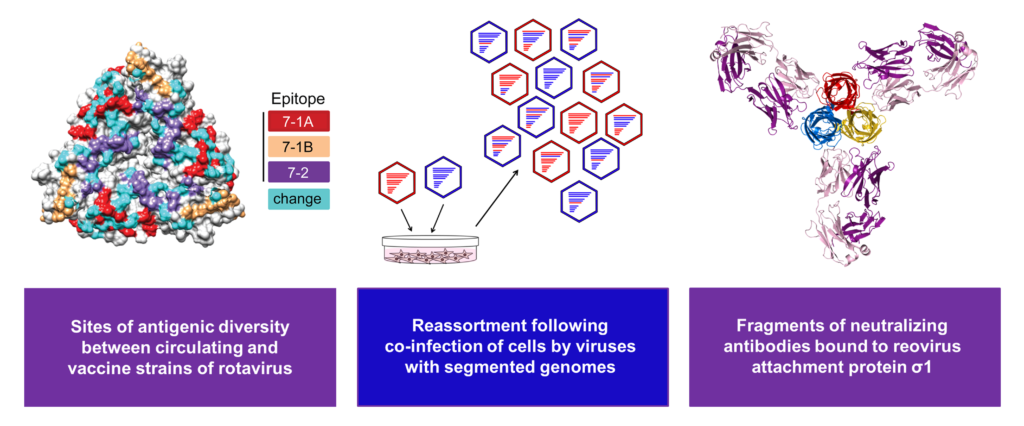Kristen Ogden
Department of Pediatrics
Department of Pathology, Microbiology and Immunology (PMI)
Vanderbilt Institute for Infection, Immunology and Inflammation (VI4)
Microbe-Host interactions Program (MHI)
Research in the Ogden lab is focused on understanding mechanisms by which segmented, double stranded RNA viruses, including rotavirus and reovirus, acquire genetic diversity and impacts of this diversity on virus and host populations. Rotavirus is an important cause of diarrheal disease that results in the deaths of hundreds of thousands of infants and young children each year, and reovirus is an oncolytic virus that infects many mammalian species, including humans, but causes disease only in newborn animals. Themes we are currently exploring in our laboratory include (i) the frequency and dynamics of genome segment reassortment during co-infection, (ii) the composition and effects of defective viral genome segments, and (iii) effects of rotavirus outer-capsid antigenic diversity on antibody-mediated viral neutralization.

Research in the Ogden lab is focused on understanding mechanisms by which segmented, double stranded RNA viruses, including rotavirus and reovirus, acquire genetic diversity and impacts of this diversity on virus and host populations. Rotavirus is an important cause of diarrheal disease that results in the deaths of hundreds of thousands of infants and young children each year, and reovirus is an oncolytic virus that infects many mammalian species, including humans, but causes disease only in newborn animals. Themes we are currently exploring in our laboratory include (i) the frequency and dynamics of genome segment reassortment during co-infection, (ii) the composition and effects of defective viral genome segments, and (iii) effects of rotavirus outer-capsid antigenic diversity on antibody-mediated viral neutralization.
Keywords: virus , RNA , antibody , evolution , pathogen , infection
Research Area: RNA Biology , Virology , Molecular Pathology